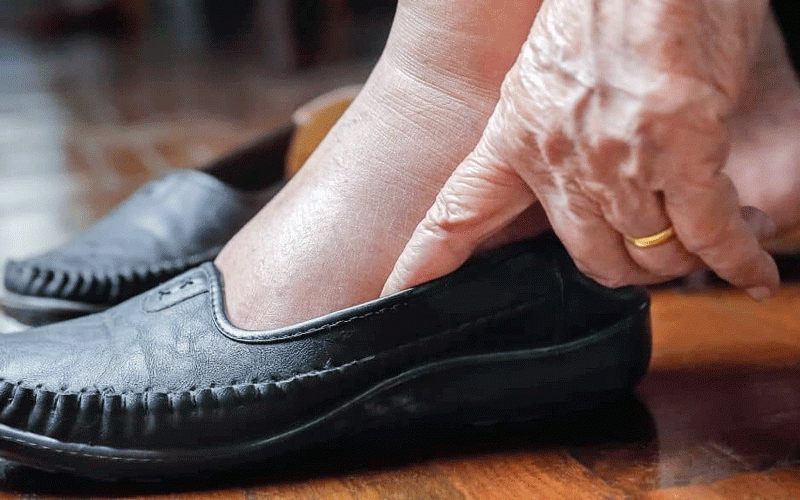
By Dr Johannes Marisa
The year 2022 started badly for many countries in the world as the new Covid-19 strain, the Omicron, sweeps across the globe at supersonic speed.
The number of new cases is surpassing 3 million on a daily basis while countries like USA, United Kingdom, Germany, France are recording quite high deaths.
The effects of the heinous virus are still toxic. South Africa is in trouble as more than 150 people are losing their lives to the diabolical virus daily.
Zimbabwe still has isolated cases of the Covid-19. However, there are less complicated cases than what used to be found in July last year during the third wave which was dominated by the delta variant.
We need to pay tribute to the few remaining health personnel who stood tall to contain the dreaded Covid-19 as we became more victorious than many of the developed countries that lost thousands of their people.
We thank God for the guidance we got despite the human vilification we got from the agents of scepticism.
A functional strategy is what is needed to sail through turbulent waters.
- Chamisa under fire over US$120K donation
- Mavhunga puts DeMbare into Chibuku quarterfinals
- Pension funds bet on Cabora Bassa oilfields
- Councils defy govt fire tender directive
Keep Reading
The year 2021 had three intertwined waves of the Covid-19 which brought untold wailing to many families in our countries.
Many complications were witnessed with a lot of respiratory distress syndrome, thrombo-embolism, renal failure, heart failure and heart attacks.
Hospitals were quickly overrun. The health professionals remained astute and focused and the country managed to contain the virus with government imposing lockdowns, enhancing vaccination processes, scaling up testing and creating more beds for admission.
Many people succumbed to Covid-19 and it is not a secret that health professionals were among them. It is gut-wrenching to lose someone in the line of duty. The other sad part was that many patients with relatives in the medical field went on to complicate.
The attending practitioners vehemently complained about a lot of interference on management of such patients with some relatives dictating what treatments to take over the phones. I wonder why our colleagues in the diaspora think we do not know what to do while we are in Zimbabwe, a country that has performed better than many European countries in terms of Covid-19 management if both morbidity and mortality are taken into consideration.
Zimbabwe boasts of producing some of the best trained medical professionals in the world hence the high rate of brain drain that is now crippling the health sector.
Medical treatment requires discipline and following of guidelines that are given by the attending practitioners and not merely “Dr Google”.
Many patients lost their lives because of arrogance shown by relatives who claim to know more than everyone just because they are now in the diaspora.
Medicine is a complex field that requires discipline not unilateral issuance or barking of instructions over the phone.
Many lost their companions because they taught them how to self-test, self-prescribe medications and self-manage even complicated cases. Desaturation became a common phenomenon as patients developed respiratory distress syndrome.
People should learn to appreciate the services rendered by health professionals and not to graduate themselves to become super specialists merely because they are now abroad.
We admit we have our ills as a nation and expect the government and other stakeholders to work around the clock to address the following:
Brain-drain in the health sectorb — 2021 becomes one of the worst years in the history of Zimbabwe if worker migration is to be talked of.
Today, the United Kingdom boasts of about 4 780 health workers from Zimbabwe, second from Nigeria that has about 10 494 health workers working in UK.
At least 2 200 health workers left Zimbabwe in 2021 alone for countries like Scotland, Ireland, Australia, New Zealand, USA.
In 2020, about 1 100 health workers left Zimbabwe while in 2019, only about 700 health workers deserted our country for greener pastures.
If the rate of staff turn-over is not slowed down, I foresee many public clinics and hospitals running with skeleton staff in 2022, a development likely to further cripple the health sector.
Husky and incontrovertible actions are supposed to be taken especially by government. Why is there no plausible action when the health sector is drowning?
Uncompetitive remuneration — Salaries are ridiculously low such that many health workers cannot afford to send their children to school. Schools are opening in about three weeks to come yet the salaries cannot even buy uniforms alone.
The inter-ministerial taskforce considered a number of factors which included the need for wi-fi, food, accommodation for health staff.
Health workers have been clamouring for vehicle loans, residential stands, farms and it is now national anthem, alas, nothing concrete is coming up with the employer.
It is time all the involved ministries put their heads together in a bid to bring relief to the disgruntled health workers.
Who is sitting on the implementation documents?
Corruption in the health sector — This scourge remains pertinent if the nation is to archive its vision of a robust health delivery service.
Many cases of corruption have been reported at hospitals where tender procedures have been flouted by those responsible for purchasing. Corrupt tendencies are rampant at many levels of health leadership.
We hope for a better 2022 in terms of health service delivery. All ills should be nipped in the bud for a better Zimbabwe. Say no to corruption and save the nation from collapse.
Let us all value our health workforce!










